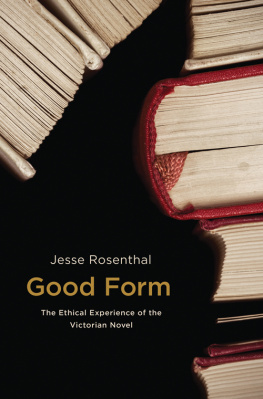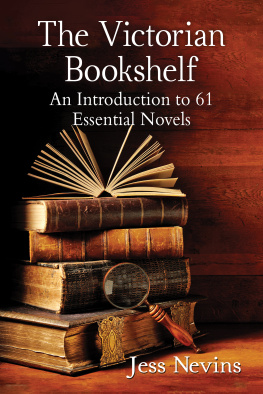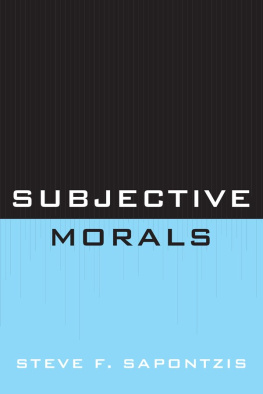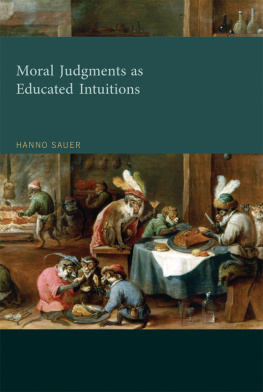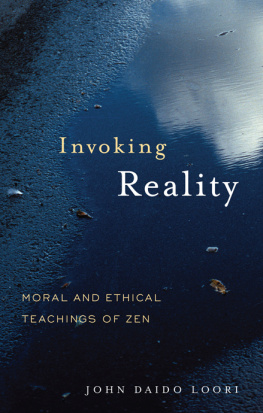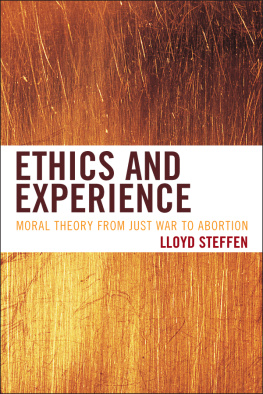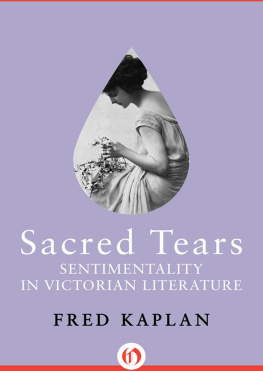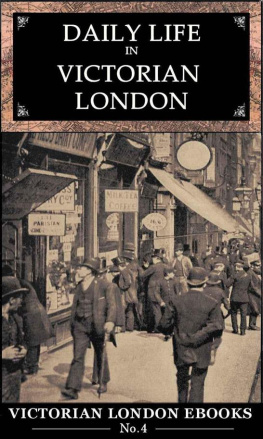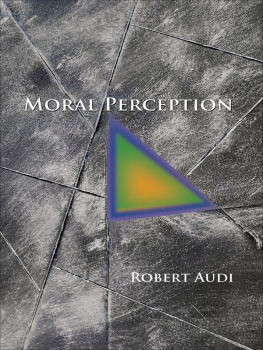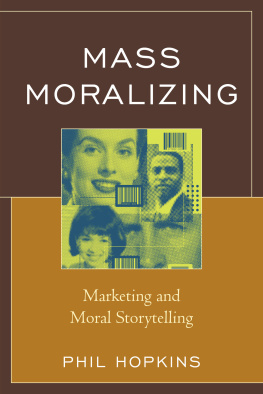GOOD FORM
GOOD FORM
The Ethical Experience of the
Victorian Novel
JESSE ROSENTHAL
PRINCETON UNIVERSITY PRESS
PRINCETON AND OXFORD
Copyright 2017 by Princeton University Press
Published by Princeton University Press, 41 William Street, Princeton, New Jersey 08540 In the United Kingdom: Princeton University Press, 6 Oxford Street, Woodstock, Oxfordshire OX20 1TR press.princeton.edu
All Rights Reserved
ISBN 978-0-691-17170-8
Library of Congress Control Number: 2016931465
British Library Cataloging-in-Publication Data is available
This book has been composed in Sabon Next LT Pro
Printed on acid-free paper.
Printed in the United States of America
10 9 8 7 6 5 4 3 2 1
For Masha
The Universality of this moral Sense, and that it is antecedent to Instruction, may appear from observing the Sentiments of Children, upon hearing the Storys with which they are commonly entertaind as soon as they understand Language.
FRANCIS HUTCHESON, INQUIRY INTO THE ORIGINS OF OUR IDEAS OF BEAUTY AND VIRTUE
The moralist, as well as the poet, must give us back the image of our mind. He must show to us the connection of moral truths which had governed our thoughts, though we had not unfolded them into reasonings.
WILLIAM WHEWELL, LECTURES ON SYSTEMATIC MORALITY
CONTENTS
ACKNOWLEDGMENTS
T his book has been a part of my life, in one form or another, for a decade now. It started as a graduate dissertation at Columbia University, where I had the great good fortune to work with Sharon Marcus, Nicholas Dames, and Bruce Robbins. This book simply would not exist without their influence, patience, and generosity. Amanda Claybaugh, Erik Gray, and Edward Mendelson might not have overseen my dissertation, but all three contributed greatly through their encouragement and wisdom. Friends from Columbia argued with me, and taught me, and helped me learn to think; though Im sure Im leaving some names out, I am especially grateful to Eugene Vydrin, Casey Shoop, Allison Deutermann, Andy Lynn, and Garrett Ziegler. Saharah Moon Chapotin provided sanctuary and understanding, an escape from New York, and far more patience than I deserved. Dehn Gilmore deserves special thanks: her intelligence and friendship are everywhere in the pages that follow.
I am also grateful to my colleagues at Johns Hopkins, who have helped me grow up as a thinker, and have helped my book grow up as well: Frances Ferguson, Richard Halpern, Eric Sundquist, Sharon Cameron, Chris Nealon, Mark Thompson, Sharon Achinstein, Drew Daniel, Jared Hickman, Jeanne-Marie Jackson, and Yi-Ping Ong. I am particularly grateful to Amanda Anderson, Jonathan Kramnick, and Douglas Mao, all of whom provided insightful comments on the manuscript. I am indebted to my editors at Princeton University Press, and two anonymous outside readers, who provided valuable suggestions as the book took its final form.
I started writing this book as an attempt to describe the points of connection between two experiences: the fraught pleasures of reading, and the often too-quiet call to right action. What I know of both of these I owe entirely to my parents, Pam and Michael Rosenthal. I was lucky enough to be raised among meaningful words: books, debates, humor, convictions. I have tried to enact, in my life and my writing, the lessons of two people who follow so faithfully a joint commitment to literature and the just society. Thanks for everything.
Since I started writing this book, Ive become a parent too, and I can only hope that I will be able to offer something similar to my daughters. Sasha and Rory: youve made my life rich. If, in later years, you happen to read this book, know that I was happy while I wrote it, because of you. And Mashafor a million reasons, but mainly because youre my brilliant best friend, this book is for you.
An abbreviated version of and the entry Wit and Humor in the Blackwell Encyclopedia of Victorian Literature (London: Wiley-Blackwell, 2015).
GOOD FORM
INTRODUCTION
MORALISED FABLES
F riedrich Nietzsche, writing at the close of the nineteenth century, offered an account of the origin of English morality. Victorians had replaced their religion with morality, Nietzsche argued, and in place of God, now believed that the source of right action lay within. No one, for Nietzsche, exemplified this better than the zealous-Calvinist-turned-secular-novelist, George Eliot:
They are rid of the Christian God and now believe all the more firmly that they must cling to Christian morality. That is an English consistency; we do not wish to hold it against little moralistic females la Eliot. In England one must rehabilitate oneself after every little emancipation from theology by showing in a veritably awe-inspiring manner what a moral fanatic one is. When the English actually believe that they know intuitively what is good and evil, when they therefore suppose that they no longer require Christianity as the guarantee of morality, we merely witness that the origin of English morality has been forgotten.
Nietzsche is wrong here, in the ways that he is often wrong: a lack of discrimination in the spectrum of the religious and the secular, a characteristic contempt for the figure of the the literary female. One more thing Nietzsche was correct about, albeit not quite in the way he intended: the origin of this connectionbetween novel-writing, intuition, and moralitywould come to be largely forgotten.
What do we mean now when we say that the progress of a narrative feels right? How did feeling, form, and the sense of right and wrong get The metaphor of physical motion, which Victorians applied to the reading experience, came to offer a means of describing the movement from what is to what ought to beor at least the yearning for that movement. At the same time, the moral valence that readers placed on the stories they read came to shape, in terms of both market forces and creative tradition, the principles that now define the well-plotted realist novel.
This book, then, will make two joined arguments. First: when Victorians discussedas they so often didthe moral dimensions of novel reading, a closer look will demonstrate that they were being a good deal more attentive to the formal properties of the novel than we have tended to give them credit for. And, second: that the moral principles that attached to the Victorian understanding of the novel form have persisted, and become an implicit part of our own ongoing critical practice. We have begun, with the recent work of critics such as Nicholas Dames and Caroline Levine, to give the Victorians credit for their formal understanding of literature. Yet even in these discussions, the moral dimensions of Victorian thought still remain a bit of an embarrassment for critics: a sort of stuffy, stiff-necked rectitude that can obscure more meaningful scientific or aesthetic insights. By offering a fuller context for the ethical discourse of the British nineteenth century, Good Form argues that Victorian formalism was inextricably tied to moral thought. This not only impacts our reading of Victorian literary and philosophical history but also offers a new perspective on our own approaches to literature. We cannot understand the formal principles of the novel that we have inherited from the nineteenth century without also understanding the moral principles that have come with them. Key Victorian insights into the theory and practice of narrative came in the guise of morals arguments, much as more recent insights have taken the form of linguistics or cultural history. And the force of these moral readings has so shaped the structure of novels, and our understanding of them, that we continue to reenact these readings today. Victorian moral thought, in other words, has become part of the fabric of both novel theory and canonical formation: what we read and how we read it.
Next page
